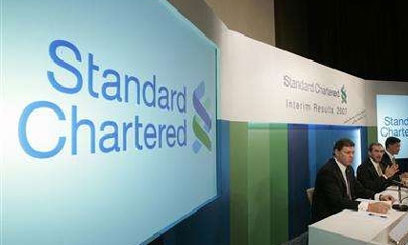NEW DELHI, July 18 – "No frills, Simple homes" reads the banner hanging in the Delhi headquarters of Unitech, India\’s leading property developer.
It\’s a mantra that has been taken up by realtors across the country with a new-found passion for affordable housing that owes little to their social conscience and everything to their bottom line.
The global economic downturn ended a four-year property boom in India that had largely been driven by the luxury housing segment and saw a near three-fold increase in residential prices in major cities.
Now developers are turning their attention to middle and lower income buyers and low-cost housing that offers lower profit margins but enjoys much greater demand.
"We made a mistake by only focusing on the top two-three percent of India\’s population," acknowledged Unitech vice president Vikram Datta.
"Now we have to reach the masses by entering into budget and affordable houses," he said.
According to a May 2009 survey by the Associated Chambers of Commerce and Industry of India, there is a nationwide housing shortage among lower and mid-income families of around 20 million units.
With luxury housing projects struggling to find buyers, that kind of demand suddenly seems more attractive.
Unitech has committed to constructing 20,000 affordable houses at a cost of 17 billion rupees (340 million dollars) by 2011 across the country, and others are following suit.
"India desperately needs budget houses. Constructing and selling them is the only way for real estate companies to survive," Rajiv Dash, a senior official at Tata Housing Development Co., told AFP.
In May, Tata launched a low-cost housing project on the outskirts of India\’s financial capital Mumbai, constructing 1,000 studio apartments which sell for as little as 7,800 dollars.
The targetted buyers are primarily factory workers and small shopkeepers.
By building on cheaper, suburban land and bulk-buying raw material, developers can turn a per-unit profit of around 15 percent which is half the return on luxury houses.
"But less profit is better than no profits," said Sanjay Verma, managing director for real estate consultancy Cushman & Wakefield.
In the last five months more than 65 property developers across the country have announced new projects in the affordable housing segment.
For 32-year-old Amar Singh, a commodity trader living in rented accommodation in New Delhi for over a decade, the new trend has enabled him to realise his dream of buying a home.
"I am now the proud owner of a small, two-bedroom apartment," said Singh, who hopes to move in to his still under-construction home by 2010.
Singh managed to procure a loan from a private bank and arranged the down payment by selling some of his wife\’s gold ornaments to seal the house deal.
Situated on the outskirts of New Delhi, his affordable housing project with 120 apartments will provide parking space to all residents, a play area for children, a power back-up and a small cafeteria.
Such amenities do not feature in the low-cost sector, where the developer\’s priority is to maximise the number of units.
"The low-cost houses are just like boxes with a door and few windows, there are no value additions," said Verma.
But while they may be spartan in the extreme, they do provide basic amenities such as water, sewerage, drainage and street lighting which is a major step up for low income settlers living in shanty towns.
The newly-elected Indian government announced a housing scheme in its recent budget as part of a plan to promote a slum-free India in five years.
Such an ambitious target, analysts say, can only be realised with massive private sector involvement.
"Indian property developers should consider themselves fortunate," argued Verma. "They have a new market to do business. The faster they make small houses, the more money they earn."



































